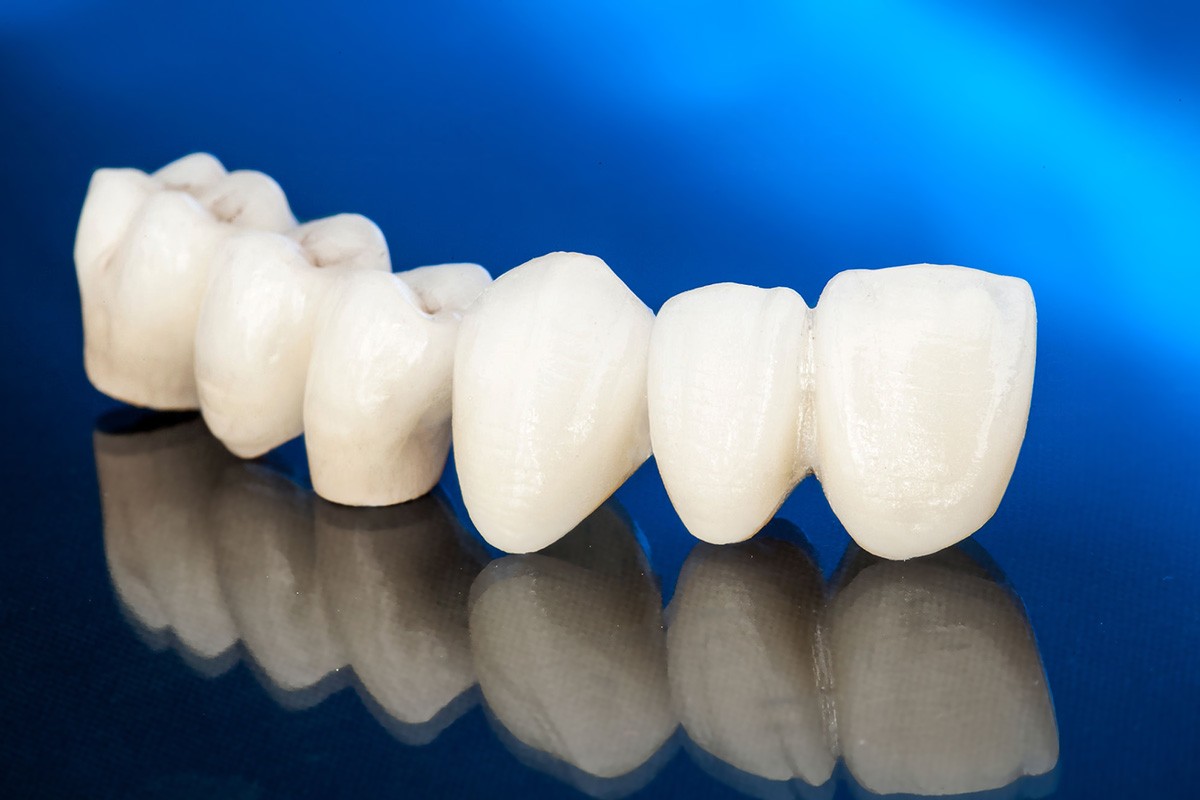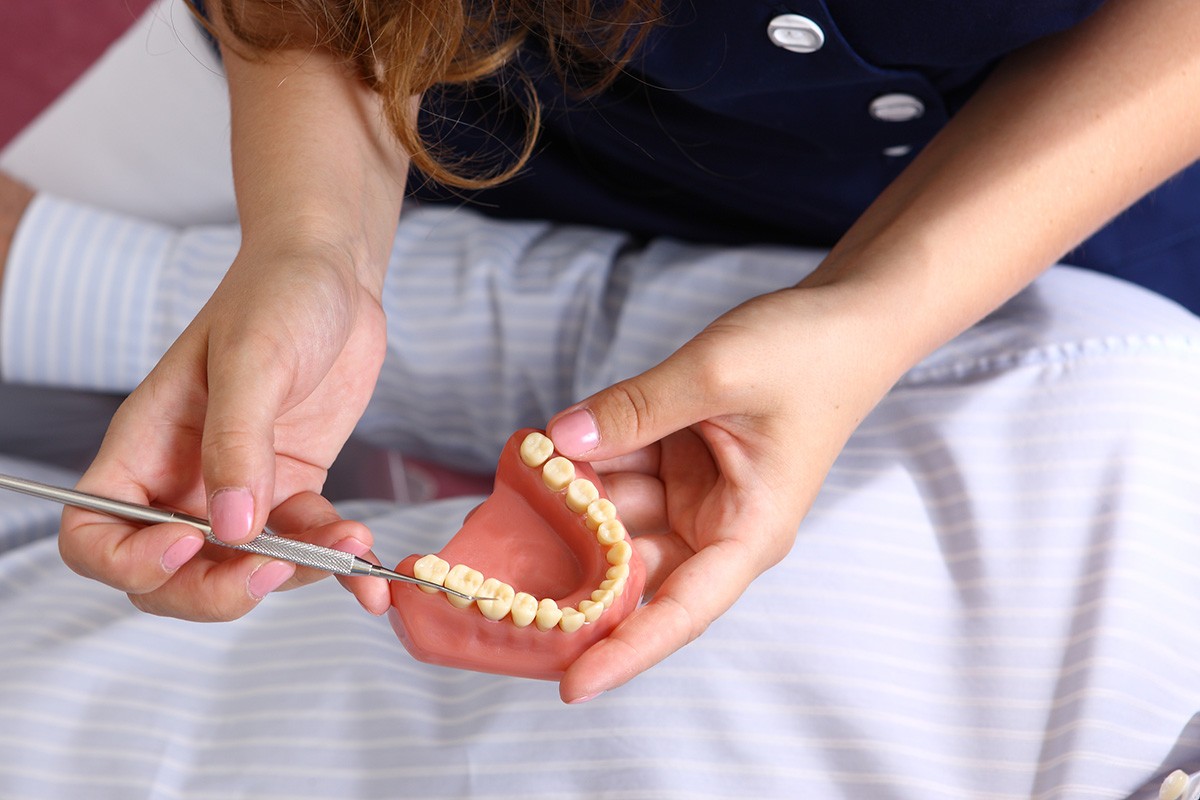Porcelain and zirconia crowns are metal-free caps on chiselled down teeth. They fit exactly on the shoulder of the chiselled down teeth, because they are made with digital technology in the laboratory based on accurate silicone imprints. The crowns accurately mimic the shape of the teeth, restoring the original anatomy (peeks and grooves) of the teeth and thereby the proper chewing function. Crowns can be placed on broken or decayed teeth or large fillings. Crowns can offer an excellent long-term protection for teeth, that underwent root canal treatment. When it is an aesthetic requirement, we place crowns on heavily discolored or misshaped (eg, worn) teeth.
Crowns can be made of a variety of materials (eg gold, titanium, nickel-free metal), but nowadays, because of the high aesthetic demands, ceramic and zirconia crowns are becoming more and more popular.


When do we need crowns? If the teeth are severely broken or heavily worn and the enamel structure is weakened. Crowns are also beneficial to strengthen root canal treated teeth as well as to the cosmetics aspect of the teeth.
What are the benefits of the crowns? A well-designed and executed crown is strong, resistant, looks and feels like our own teeth. The same color and shape as the other teeth can be created with a crown on the chiselled down tooth. A properly cared for crown can last for decades.
How to take care of the crown? To protect the health of teeth and gum use fluoride toothpaste and dental floss twice a day, reduce sugary and acidic food / drink intake to prevent caries and have regular dental check-ups and tartar removal to extend the lifespan of the crown.
What other materials are crowns made of? Ceramic, synthetic resin, acrylate, gold, gold-ceramic, metal-ceramic, zirconium-ceramic. All these materials are available at our clinic, but we recommend Emax crowns for highest quality. The Emax crowns are made of pressed ceramic that combines excellent strength, high resistance, durability, and offer the precise copy of your natural teeth.


